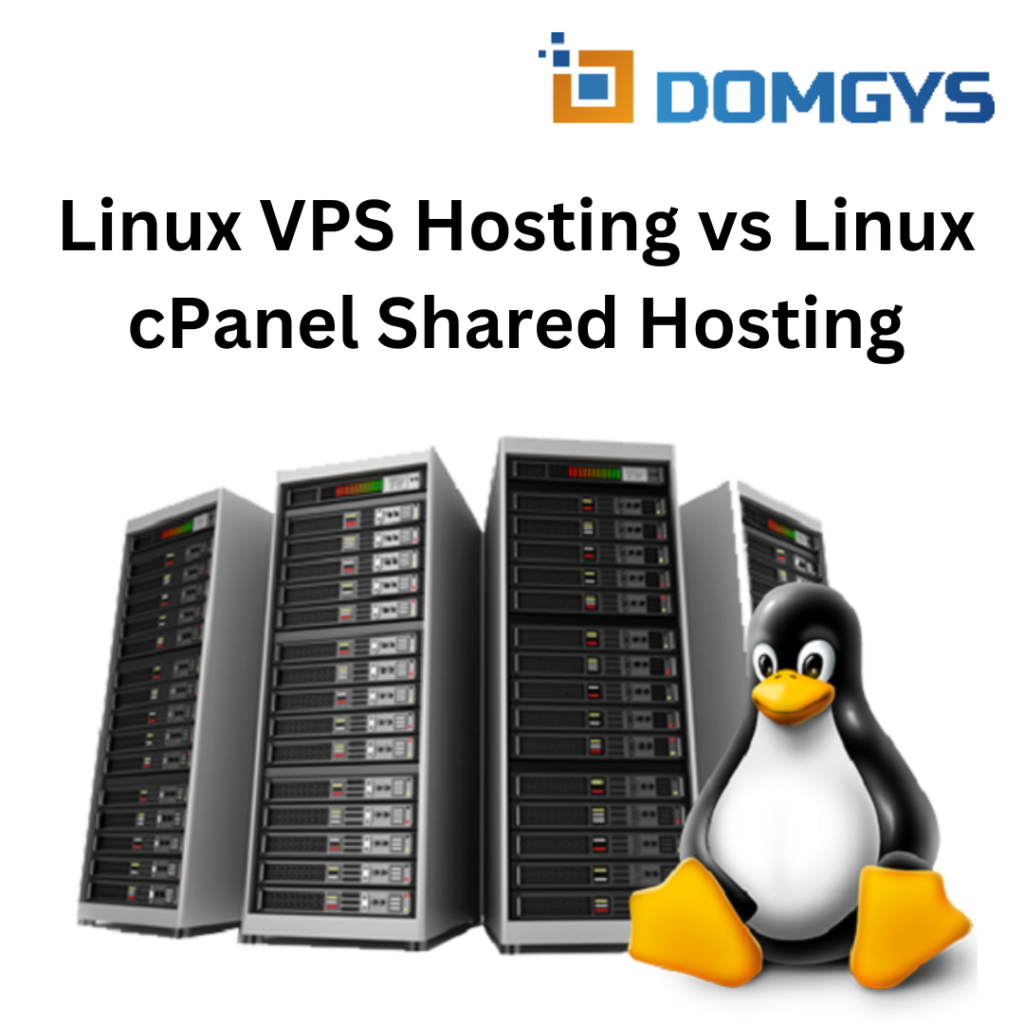
Security is a paramount concern for any website owner or online business. When it comes to choosing a hosting solution, understanding the security features offered by different hosting options is crucial for safeguarding your website, data, and sensitive information. In this article, we’ll delve into the security features of Linux cPanel Shared Hosting and Linux VPS Hosting, comparing their strengths and weaknesses to help you make an informed decision about the best hosting solution for your security needs.
Security Features of Linux cPanel Shared Hosting:
Linux cPanel Shared Hosting is a popular choice for individuals and small businesses looking for an affordable and user-friendly hosting solution. While shared hosting offers convenience and ease of use, it also presents unique security challenges due to the shared nature of resources.
- Server-level Security Measures:
- Shared hosting providers typically implement server-level security measures to protect against common threats such as DDoS attacks, malware, and hacking attempts. These measures may include firewall protection, intrusion detection systems (IDS), and regular security audits to identify and mitigate vulnerabilities.
- However, the effectiveness of server-level security measures can vary depending on the hosting provider’s infrastructure and security protocols. It’s essential to choose a reputable hosting provider that prioritizes security and implements robust security measures at the server level.
- Isolation and Resource Allocation:
- In shared hosting environments, multiple users share the resources of a single server. While hosting providers strive to enforce isolation between user accounts to prevent unauthorized access, the shared nature of resources can pose security risks.
- Issues such as resource contention and the “noisy neighbor” effect, where one user’s activities impact the performance of others, can potentially compromise the security and stability of websites hosted on shared servers.
- Account-level Security Controls:
- cPanel, a popular control panel used in Linux shared hosting environments, offers various security controls at the account level. Users can manage security settings, set up firewalls, and configure access restrictions to enhance the security of their websites and server resources.
- Additionally, cPanel provides tools for monitoring and managing security-related activities, such as tracking login attempts, managing SSL certificates, and implementing security policies.
- Regular Software Updates:
- Hosting providers are responsible for maintaining and updating server software to address security vulnerabilities and ensure the latest security patches are applied. However, in shared hosting environments, users may have limited control over software updates, relying on the provider to promptly address security issues.
Security Features of Linux VPS Hosting:
Linux VPS Hosting offers a more secure hosting environment compared to shared hosting, providing users with greater control and isolation over their server resources. Here are some key security features of Linux VPS Hosting:
- Isolation and Dedicated Resources:
- Unlike shared hosting, where resources are shared among multiple users, VPS hosting provides dedicated resources and isolation for each virtual server instance. This isolation minimizes the risk of security breaches caused by neighboring users and enhances the overall security of the hosting environment.
- Users have root access to their VPS, allowing them to implement customized security measures, configure firewall rules, and install security software tailored to their specific needs.
- Enhanced Control and Customization:
- VPS hosting offers greater control and customization options compared to shared hosting. Users have the flexibility to install and configure security applications, such as intrusion detection systems, antivirus software, and web application firewalls, to strengthen server security.
- Additionally, users can implement security best practices, such as disabling unnecessary services, configuring secure SSH access, and regularly updating software, to mitigate security risks and protect against potential vulnerabilities.
- Scalability and Resource Management:
- VPS hosting allows for scalable resource allocation, enabling users to adjust server resources according to their requirements. This scalability feature helps ensure optimal performance and security, allowing users to allocate additional resources to handle traffic spikes or resource-intensive applications.
- Users can monitor resource usage, set up alerts for abnormal activity, and optimize resource allocation to prevent security incidents and maintain server stability.
- Enhanced Network Security:
- VPS hosting providers often implement advanced network security measures, such as network-level firewalls, intrusion detection/prevention systems (IDS/IPS), and DDoS protection, to safeguard against external threats and unauthorized access.
- These network security features help mitigate risks associated with network-based attacks, such as brute force attacks, SQL injection, and cross-site scripting (XSS), by monitoring and filtering incoming and outgoing traffic at the network level.
Choosing the Right Hosting Solution for Your Security Needs:
When deciding between Linux cPanel Shared Hosting and Linux VPS Hosting, it’s essential to assess your security requirements and evaluate the features and capabilities of each hosting option.
- If you prioritize affordability and simplicity and have lower security requirements, shared hosting may be suitable for your needs. However, be mindful of the inherent security risks associated with shared hosting and choose a reputable provider that implements robust security measures.
- If security is a top priority and you require greater control, isolation, and customization options, VPS hosting offers a more secure hosting environment. Consider VPS hosting if you manage sensitive data, run mission-critical applications, or require advanced security features to protect your website and server resources.
Ultimately, the right hosting solution depends on your specific security needs, budget constraints, and technical expertise. By carefully weighing the security features and considerations outlined in this article, you can make an informed decision that ensures the security and integrity of your online presence.

